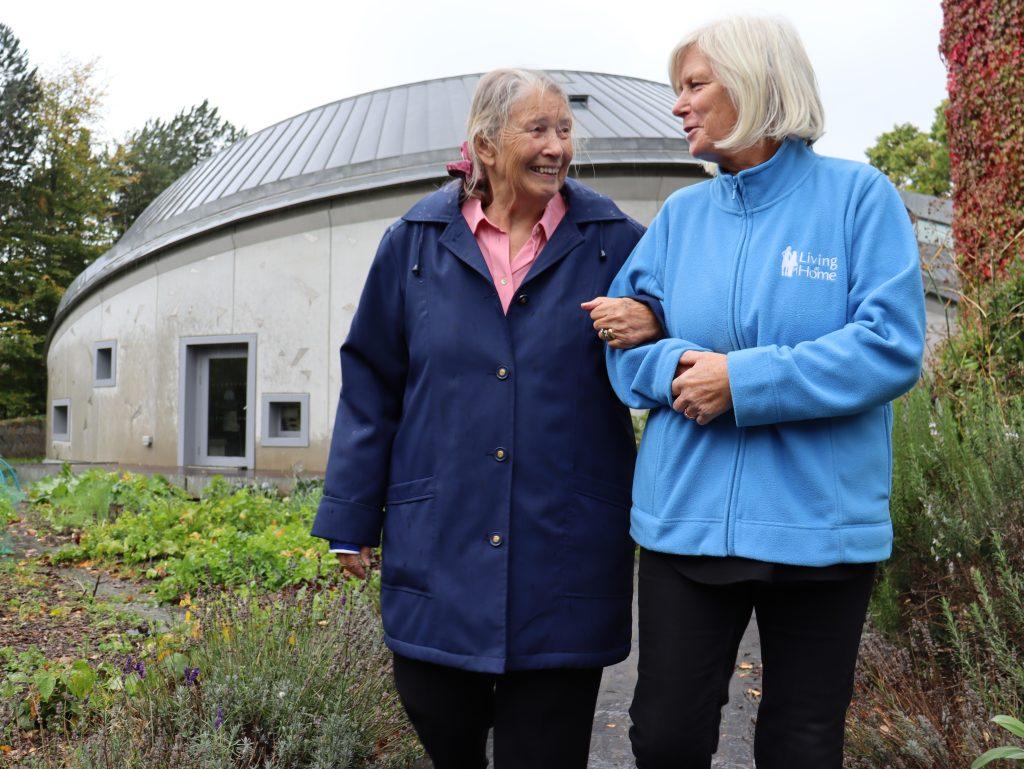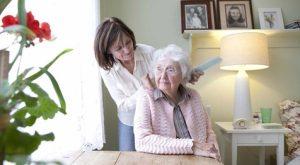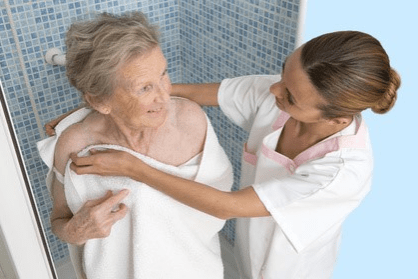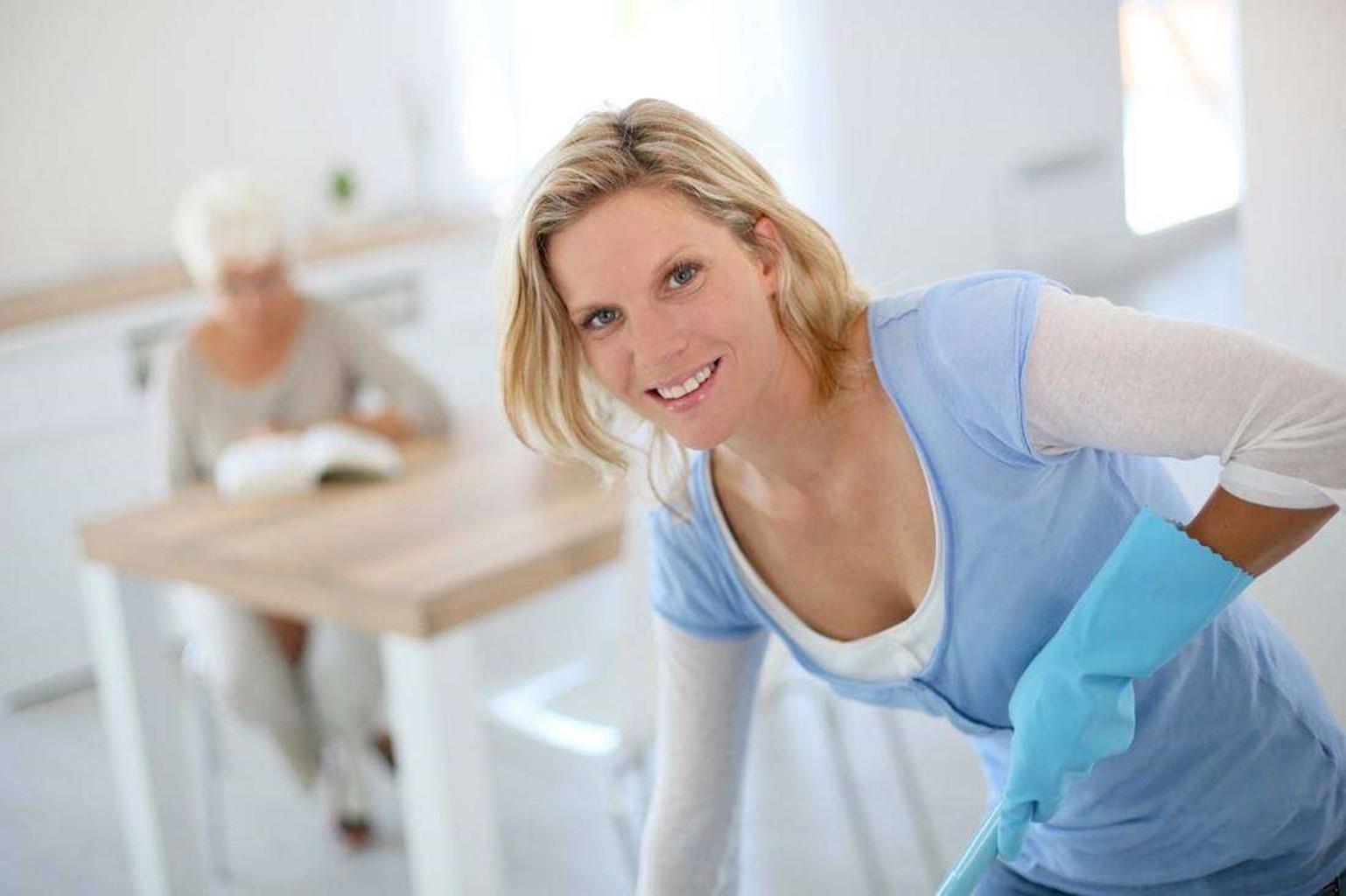Care Professionals Champion
Sarah the Care Professionals Champion

My name is Sarah, and I’m the Care Professionals Champion
As you can tell by my name, I’m the official advocate of Living at Home, and I’m going to be a champion for Care Professionals’ rights and recognition.
From my picture, you can probably see that I have a passion for brightening people’s days with a splash of colour.
In fact, you could say that it’s my mission, or raison d’être – ‘reason for being’.
I owe my existence to Joanne Abraham, managing director of Living at Home, and I haven’t wavered from my mission of making the care sector a better place for all involved.
Here, I’ll walk you through a regular day in my life.
What does a Care Professionals Champion do?
As the Care Professional Champion, it’s my role to advocate for the interests
and well-being of Care Professionals.

I work to improve the quality of care provided to individuals and communities by supporting and empowering Care Professionals.
I’ll keep you in the loop regarding the latest updates and news in the social care sector from around the UK.
When it comes to social care, all we ever hear is doom and gloom, making it impossible to discover any good news.
One of the most important challenges I have is to search out and advocate for as many positive news stories as I can find.
According to Social Care Wales, 72,440 people worked in social care in Wales in 2021, people who tirelessly delivered care services and performed acts of great kindness that often went unrecognised.
That includes 20,644 employees working for home care providers and 30,531 employees working for residential care providers.
Across the UK, Care Professionals often go above and beyond the call of duty, yet we rarely hear about them.
Because I believe that this is unfair, I will be promoting the outstanding work that is being done by all our Care Professionals as well as vital information that relates to the social care sector.
Just in case you couldn’t tell, I’m extremely proud to be a champion of this cause.
“It is not how much you do, but how much love you put in the doing.”
My role as the Care Professional Champion
My role as a Care Professional Champion can vary depending on the specific context and setting, but some common responsibilities include:
- Providing advocacy and support for Care Professionals: As the Care Professional Champion, I serve as an advocate for Care Professionals and work to address the issues and challenges facing the sector. I will provide support, guidance, and mentorship to Care Professionals to help them succeed in their roles.
- Promoting best practices and quality care: As the Care Professional Champion, I will work to promote best practices in care and support the delivery of high-quality care services. I will discuss training and resources for Care Professionals to improve their skills and knowledge.
- Building relationships with stakeholders: As the Care Professional Champion I will work to build relationships with stakeholders, such as government agencies, industry organizations, and advocacy groups, to promote the interests of Care Professionals and ensure that their voices are heard.
- Advocating for policy change: As the Care Professional Champion I will advocate for policy changes that benefit Care Professionals and improve the quality of care provided to individuals and communities.
I will work with policymakers and other stakeholders to develop and implement policies that support the sector.
Overall, as the Care Professional Champion, I play a critical role in supporting and empowering Care Professionals to provide high-quality care services.
I’ll work to help ensure that Care Professionals have the resources, support, and recognition they need to succeed in their roles and make a positive impact on the lives of the people they serve.

What does a day in the life of a Care Professional look like?
A Care Professional provides care and support to individuals in their own homes.
Here is a general overview of what a typical day might look like for a Care Professional:
- Planning and preparation: At the start of the day, a Care Professional will review their schedule and plan their activities for the day. They may also prepare any materials, equipment, or supplies they will need for their work.
- Travel and arrival: Depending on their role, a Care Professional may need to travel to different locations to provide care services. They will use their own vehicle to reach their destination.
- Client support: A significant portion of Care Professional’s day is spent supporting their clients in their own homes. This may involve providing personal care, administering medication, assisting with daily living activities, or providing emotional support and companionship. The specific tasks they perform will depend on the needs of their clients and their training and qualifications.
- Communication and collaboration: Care Professionals often work independently, but they will need to communicate and collaborate with other professionals, such as district nurses, doctors, occupational therapist, pharmacies, social workers or family members. They may also communicate with their employer to report any changes in the client’s condition or to request additional support.
- Documentation and reporting: Care Professionals are required to maintain documentation and records of the care they provide. They may spend time completing care plans, progress notes, or other reports.
- Travel and arrival to the next client: Once they have completed their work with one client, a Care Professional will travel to their next client’s home to provide care services.
- End-of-day tasks: At the end of the day, a Care Professional will complete any remaining documentation or reporting tasks, clean and disinfect equipment and supplies, and prepare for the next day’s activities.
Overall, a day in the life of Care Professional can be busy and demanding.
They must be able to work independently, adapt to the needs of each client, and provide high-quality care services in a home setting.
However, they also have the opportunity to make a meaningful difference in the lives of the individuals they support and help them live as independently and fulfilling a life as possible.
What types of tasks does a Care Professional perform?
Care Professionals assist people on a daily basis with their care and support needs to maintain their independence as they age.
For most seniors, living at home is indeed the preferred option

This can be addressed through a variety of services for people, from a simple companionship visit to comprehensive 24/7 Live-in care services.
Let me take you through each of the services that a Care Professional provides:
Social Activities and Companionship: There are people who don’t require specialised care services because all they want is a friend to talk to about their passions, pastimes, loves and thoughts.
In order to support people who don’t need specialised care, Care Professionals can also take them on outings that are sure to put a smile on their face and brighten their day.
Personal Care: Personal care is support that involves a Care Professional and an individual involving physical contact.
This might involve personal duties, such as bathing, showering, applying creams and lotions, dressing, toileting, as well as continence management and general laundry.
This can be as simple as putting soap on a flannel and giving it to the person so they can wash themselves. This encourages their independence and helps to maintain their dignity.
Dementia and Alzheimer’s Support: As a champion for the care sector, it is important for me to raise awareness around dementia.
There are 944,000 people living with dementia in the UK. This will increase to over one million by 2030 and over 1.6 million by 2050 according to Alzheimer’s Research UK.
Care Professionals help people living with Alzheimer’s disease and other forms of dementia by setting up regular routines that can make their lives much better.
Skilled Care Professionals go to the homes of people living with dementia at prearranged times or even move in to provide individualised assistance through personal care, cleaning, companionship, food preparation, medication and other tasks.
These services are personalised to meet the needs of each individual.
The consistency of routine, continuity of the Care Professional, familiarity with the setting and one
-on-one attention from a Care Professional can all help to improve the quality of life of the individual.
From Hospital to Home: If someone has recently undergone surgery or spent a significant amount of time in the hospital, having assistance with rehabilitation can help reduce the likelihood that they will sustain a subsequent injury.
When that person returns home from the hospital, the simple knowledge that they will be greeted by a friendly face and helped with personal care tasks can help them regain their confidence, in turn contributing to their reablement and eventual return to independent living.
Specialist Support: Care Professionals provide support to people who are in the final months or years of their lives through end-of-life care.
Care provided towards the end of life should enable people to live as comfortably as possible up until the time of their death with dignity.
The Care Professionals who are providing people with care should inquire about their wishes and preferences and then take these into consideration while planning the care in collaboration with the individual.

Families, carers and any other individuals who are important to the person should also receive support from the Care Professional.
During this period, the Care Professional exhibits a great level of compassion, dignity, kindness and respect for the individual receiving their support.
Live-in Care: In place of residential care, a Care Professional will live with a person and help them when they need it.
The Live-in care service provides one-on-one, personalised care for people around the clock, in the comfort, safety and surroundings that are most familiar to them: their own home.
This care is provided by a Live-in Care Professional who has been professionally trained and matched with the person requiring this type of support.
This enables the person to live according to their own routine while at the same time maintaining the ability to interact with their family members, friends and community in the comfort of their own home.
This service makes it possible for people to keep living at home for as long as possible.
How we lived with the COVID-19 virus
Before January 2020, Care Professionals were not given much attention or recognition for the tremendously difficult job they did, day in, day out, rain or shine.
However, all that changed in the months following, when we had to live with the awful COVID -19 Virus.
Care Professionals became front-page news and took on a new name: Key Frontline Workers.
Amazingly, people would stand on their doorstep at 8 p.m. on a Thursday evening and clap for us and other frontline workers. Who would have thought!
Well, it’s three years on, and COVID feels like a thing of the past, but for Care Professionals, the work goes on.
They don’t stop, and we have more vulnerable people requiring care services now than ever before.
The discovery of a vaccine for COVID-19 is not the end of the road for those who work in the social care sector.
Care Professionals haven’t stopped delivering high-quality care; they will never stop.
The road ahead for the Care Professionals Champion
So, follow me on my journey in the months and years ahead.
I’ll be providing news and updates on subjects such as:
- Improved pay and working conditions for Care Professionals
- Professionalising the care sector
- Recognition for the contributions of Care Professionals
- Insight into funding the social care sector
- Crises resulting from the shortage of Care Professionals
- Hospital discharge problems
- And many, many more

Overall, addressing these challenges requires greater investment in social care services, improved working conditions and benefits for social care workers, and a greater recognition of the value and importance of social care work.
But I promise I won’t just report bad news; I’ll highlight any and all positive developments I come across in an effort to draw attention to and celebrate the fantastic work of Care Professionals.
My name is Sarah, and I am the Care Professionals Champion.
To begin your journey of care and support…

Give the team a call
If you or a loved one think we can help, please contact Joanne and the team

Arrange a visit
We will visit you at your home to discuss the care and support needs.

Meet your new friend
We’ll arrange for home visits and reviews to ensure best care and support











